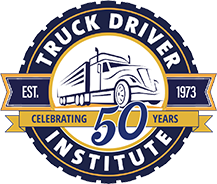Do Truck Drivers get Holiday Pay? What You Need To Know
If you have been researching careers in the truck driving industry, you’ve no doubt been wondering, “Do truck drivers get holiday pay?” and “How much vacation time are they entitled to?” Truck driving is a demanding lifestyle that requires dedication and commitment, so you’re naturally curious about how much downtime is to be expected. Truck drivers are in high demand, so carriers are doing what they can to ensure they keep their skilled drivers and bring on new ones. The short answer to “Do truck drivers get holiday pay?” is yes, while the long answer requires a bit more detail.
 Do Truck Drivers Get Holiday Pay?
Do Truck Drivers Get Holiday Pay?
When it comes to holidays, there are a handful of questions potential truckers ask: Do I get holidays off? Am I paid during those holidays? Do I get paid more to work holidays?
The Fair Labor Standards Act (FLSA) states that employers are not required to give drivers a holiday off of work. If they do provide one, it is not mandatory to pay the driver for time not worked, like vacation or holiday time. Federal law does require employers to offer reasonable accommodations for employees to celebrate religious holidays, but on the whole, companies are allowed to craft their own policies regarding time off, though most see the benefits of offering paid holidays to provide employee incentive.
The amount of vacation or break time you get as a driver can depend on the type of driving you do, the size of your carrier, and your seniority in the company. Smaller companies or union jobs are likely going to have better options for drivers wanting to balance life at home vs life on the road. Local or regional trucking jobs will likely have more flexible schedules vs over the road (OTR) jobs that have drivers spending an average 3-4 weeks on the road at a time.
By law, drivers are required to take a full 34-hours off after a 70-hour job, but such little rest is often not enough, and it’s not guaranteed that you’ll be spending those 34 hours with loved ones, since these breaks often fall between distant jobs. Holidays are important for maintaining mental health, so it’s important that each driver has an understanding of what their carrier’s policies will be.
Paid Holidays Vs Holiday Pay
Paid Holiday
This is a bonus given to employees so they may take time off without losing their regular wages. Some companies will offer this upon employment, while others will reserve this privilege for drivers who have been with the company a year. Many carriers increase paid time off benefits with each year a driver spends with them, and some will offer PTO depending on miles driven. The usual recognized holidays eligible for paid holidays are New Year’s Day, Memorial Day, Independence Day, Labor Day, Thanksgiving Day, and Christmas Day.
According to CDL Training Today, there are highs and lows of trucker demand during the holiday season. Most stores overstock for Black Friday and Cyber Monday events, so “there are usually large sales to move products after the holidays and to reduce the overstocking they did prior. This means a truck driver will have fewer routes and may be able to take a week off during the holidays to spend with family and friends.” Paid holidays are a good perk to offer drivers if possible, but this time off is not guaranteed.
Holiday Pay
Due to the busy nature of truck driving, it’s usually not possible for every driver to get every holiday off. It can be a tremendous sacrifice to be away from family and friends during these times, so many carriers have policies for holiday pay. Holiday Pay is a special rate that employers will provide employees willing to work on approved holidays. This holiday rate is usually a higher wage than regular hours in order to compensate the driver and incentivize working during this time. Just like PTO, the rates for this vary by carrier and amount of driver experience.
Floating Holiday
Some carriers will offer a “floating holiday” or a paid day off outside of official holidays that the driver can decide when to take. It can “float” to the day of the year the driver needs it. Some will use this for special occasions, like birthdays and weddings, that the company would not normally allow paid time off for. Typically floating holidays are awarded at the beginning of the year and expire at the end, rather than accumulate over time like PTO days. Some organizations have blackout dates at peak times where no one is allowed to use their floating holiday due to driver demand, but ultimately this is another useful tool to help employees feel a bit more in control of their schedules.
Why Are Holidays Important?
It’s important for carriers to work with their drivers to create holiday policies. Not only is time off important for mental health, but it can vastly improve physical health. Concrete holiday policies can greatly reduce stress levels, which improves motivation, decreases burnout, and boosts job satisfaction. Reduced stress means drivers will, on average, sleep better, have reduced body tension, and have decreased risk of cardiovascular disease and high blood pressure. Holidays off can be the greatest gift for a truck driver, and guarantee they will do their jobs better than ever when they get back on the road.
Wondering “Do Truck Drivers Get Holiday Pay?” Learn More at TDI
If you’ve got more questions about the truck driving industry, Truck Driver Institute is your number one place for the latest updates about the profession. Since 1973, we’ve trained thousands of Class A and B CDL drivers at our professional training centers around the country. Our classes are taught by industry professionals with decades of experience, so drivers can get out on the road within 3 weeks. Want to work for a carrier with guaranteed vacation time? Our career placement program can help you find an employer who can meet your needs, and this service is available to any and all graduates. If you’ve been considering a career change, call us today to learn more and become part of an elite and adventurous profession.
Get Started
Get your Class A CDL in our friendly, supportive CDL training program. TRAIN with experienced instructors – multiple good-paying, secure job choices with benefits available for eligible graduates. EARN $700 – $1000+ / week to start as a truck driver. Get started today by filling out the form below. We look forward to hearing from you!



